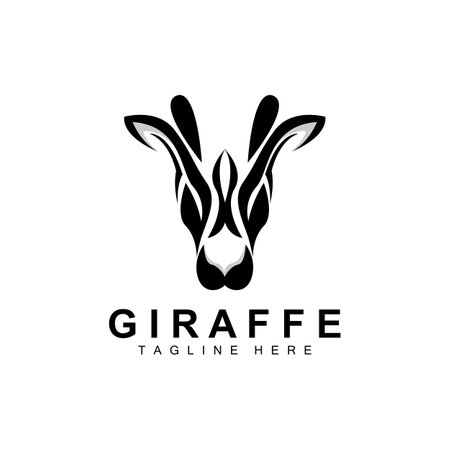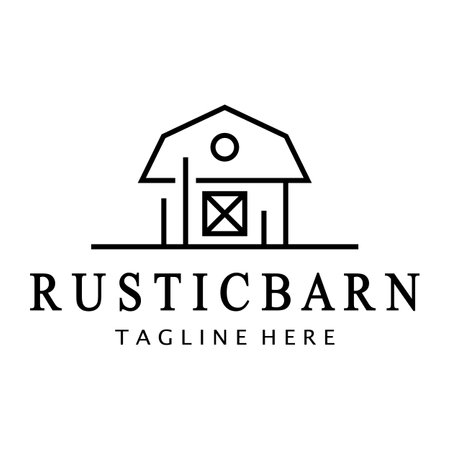Introduction to Sustainability and Ethics in UK Luxury Fragrance
The British luxury fragrance industry, renowned for its heritage brands and artisanal craftsmanship, is currently navigating a transformative period marked by heightened consumer consciousness around sustainability and ethics. In recent years, the discerning British gentleman—alongside an increasingly eco-savvy clientele—has begun to scrutinise not only the sophistication of scent but also the values underpinning its creation. As environmental issues such as climate change, resource depletion, and plastic pollution dominate headlines across the UK, there has been a pronounced shift in expectations for brands to operate transparently and responsibly. Sustainable sourcing of ingredients, ethical treatment of workers, cruelty-free testing methods, and recyclable packaging are no longer just commendable initiatives but essential pillars that define modern luxury in Britain. This growing awareness has prompted both legacy houses and emerging niche perfumers to re-evaluate their practices in a bid to align with the evolving standards of ethical consumerism. In this context, understanding how British fragrance brands address sustainability and ethics has become integral to appreciating the true value of luxury scents in today’s marketplace.
2. Current Industry Standards and Regulatory Landscape
The UK luxury fragrance sector operates within a robust framework of regulations and standards that aim to ensure both sustainability and ethical integrity. As the demand for conscientious consumption grows, brands must navigate not only domestic laws but also wider European Union directives—despite Brexit’s impact, many EU standards still strongly influence UK practices due to market overlap and consumer expectations.
Key UK and EU Regulations Impacting the Fragrance Industry
| Regulation/Directive | Jurisdiction | Main Focus | Impact on Brands |
|---|---|---|---|
| UK Cosmetics Regulation (UKCR) | United Kingdom | Product safety, ingredient transparency, labelling | Ensures safe formulations; strict labelling; bans harmful substances |
| EU Cosmetics Regulation (EC) No 1223/2009 | European Union/Influences UK | Safety assessment, animal testing bans, CMR substance restrictions | Drives cruelty-free development; compels rigorous testing and documentation |
| REACH Regulation (EC 1907/2006) | European Union/UK-adopted | Chemical registration, evaluation, authorisation, restriction | Encourages safer ingredient choices; promotes supply chain transparency |
| Environment Act 2021 | United Kingdom | Sustainable resource management, waste reduction | Puts pressure on brands to adopt recyclable packaging and reduce carbon footprint |
Industry Certifications Driving Ethical Practices
Apart from legal compliance, luxury fragrance houses in the UK increasingly seek voluntary certifications to evidence their commitment to sustainability and ethics. Popular certifications include:
| Certification Body | Description & Criteria | Relevance to Luxury Fragrance Brands |
|---|---|---|
| B Corp Certification | Holistic assessment of environmental and social performance across entire business operations. | Signals comprehensive ethical commitment beyond product claims. |
| Cruelty Free International – Leaping Bunny Programme | No animal testing at any stage of product development or production. | Meets growing consumer demand for cruelty-free fragrances. |
| The Soil Association/COSMOS Organic Standard | Certain percentage of ingredients certified organic; sustainable sourcing protocols. | Appeals to eco-conscious consumers seeking natural luxury options. |
| RSPO Certification (for palm oil derivatives) | Sustainable palm oil sourcing with traceability requirements. | Tackles a major environmental concern present in some fragrance bases. |
The Interplay Between Regulation and Brand Ethics in Practice
The intersection between regulatory compliance and voluntary certification is where true leadership emerges in the UK luxury fragrance industry. While government mandates lay down the minimum standard, it is often these additional certifications—and transparent reporting—that differentiate brands with genuine ethical commitments from those indulging in greenwashing. For instance, top British perfumers now publicise their ingredient sourcing practices and environmental impact metrics as part of annual sustainability reports. In this evolving landscape, adherence to both statutory rules and aspirational benchmarks is not just about ticking boxes—it’s about earning trust from discerning British consumers who expect nothing less than authenticity and accountability from their luxury purchases.

3. Sustainable Sourcing and Ingredient Transparency
In the UK luxury fragrance industry, sustainable sourcing and ingredient transparency have become central to ethical practice and consumer trust. Major British brands are increasingly scrutinising their supply chains to ensure that raw materials are procured in ways that respect both people and the planet. This shift is not merely a nod to current trends but a response to growing consumer demand for fragrances that embody authenticity and responsibility.
Local Sourcing Initiatives
British fragrance houses are placing emphasis on local sourcing as a means of reducing carbon footprints and supporting domestic agriculture. Brands such as Floris London and Penhaligon’s have begun collaborating with UK farmers and botanical gardens, utilising native botanicals like English lavender, Cornish gorse, and wild rose. These partnerships not only ensure freshness and traceability but also celebrate British heritage within each bottle.
Commitment to Fair Trade
Ethical sourcing extends beyond borders, particularly for exotic ingredients such as oud, vanilla, or sandalwood, which cannot be cultivated in the UK climate. Leading brands are increasingly investing in fair trade cooperatives abroad, ensuring that farmers receive equitable wages and work under safe conditions. Jo Malone London, for example, has publicly committed to sourcing ingredients through certified fair trade schemes where possible, helping to foster economic empowerment in producer communities.
Traceability: From Seed to Scent
Transparency around ingredient origins is now a hallmark of reputable luxury fragrance brands. Many companies provide detailed information on their websites about the provenance of their key ingredients, tracing the journey from seed to scent. This level of openness reassures consumers that products are free from exploitation and environmental harm, strengthening brand loyalty among ethically minded clientele.
Botanical Conservation Efforts
Sustainability-minded UK fragrance houses recognise their role in preserving endangered plant species vital to perfumery. Initiatives include supporting conservation projects, adhering to CITES regulations (Convention on International Trade in Endangered Species), and investing in research for synthetic alternatives where wild harvesting threatens biodiversity. Such efforts help maintain ecological balance while ensuring the future availability of cherished natural aromas.
Overall, sustainable sourcing and ingredient transparency have become non-negotiable standards for UK luxury fragrance brands wishing to maintain their prestige in an increasingly conscious market. By prioritising local partnerships, fair trade principles, full traceability, and botanical conservation, these brands are setting new benchmarks in ethical luxury—proving that style can indeed go hand-in-hand with substance.
Packaging Innovations and Eco-conscious Design
The UK luxury fragrance industry has witnessed a significant shift towards sustainability, particularly in the realm of packaging. With growing consumer awareness and regulatory pressure, brands are rethinking their approach to both aesthetics and environmental impact. This movement is not just about reducing waste; it’s about integrating eco-conscious principles into the core of brand identity and design philosophy.
Recyclable, Refillable, and Biodegradable Solutions
Leading UK fragrance houses are increasingly adopting recyclable materials such as glass and aluminium for their bottles, moving away from single-use plastics. The introduction of refillable systems is another stride forward, allowing customers to replenish their favourite scents without purchasing entirely new packaging each time. Additionally, biodegradable materials—such as plant-based plastics and compostable cartons—are becoming more prevalent, reflecting a broader commitment to circularity.
Comparison of Packaging Approaches Among UK Luxury Brands
| Brand | Recyclable | Refillable | Biodegradable Components |
|---|---|---|---|
| Jo Malone London | Yes (glass bottles) | No | Some carton packaging |
| Miller Harris | Yes (glass & paper) | Limited editions | Yes (cartons) |
| Floris London | Yes (glass) | No | No |
| PENHALIGON’S | Yes (glass & paper) | Some lines | No |
Sustainability-driven Design Trends
The drive for sustainability is also shaping the visual language of luxury fragrance packaging. Minimalist designs that avoid unnecessary embellishments are on the rise, reducing the amount of material used. Labels printed with vegetable-based inks and understated branding support eco-friendly narratives while appealing to modern British sensibilities. Furthermore, some brands are collaborating with local artists or artisans to create reusable outer cases or bespoke decorative elements that encourage consumers to repurpose rather than discard.
The Future Outlook
The intersection of sustainability and luxury is redefining what it means to be premium in the UK fragrance sector. As eco-conscious design becomes a non-negotiable standard rather than a niche differentiator, brands must continue innovating—not only to comply with regulations but also to meet the evolving expectations of discerning British consumers. The journey towards fully sustainable packaging is ongoing, but the momentum in the UK market suggests a promising future where ethics and elegance walk hand in hand.
5. Brand Case Studies: Leaders and Laggards
When it comes to sustainability and ethics in the UK luxury fragrance industry, not all brands are created equal. Some have set benchmarks for responsible practices, while others struggle to keep pace with rising consumer expectations and regulatory demands. This section critically compares prominent UK luxury fragrance brands, spotlighting both their pioneering efforts and areas where improvement is still needed.
Leaders: Setting the Bar High
Jo Malone London
Jo Malone London stands out as a leader in sustainable luxury. The brand has made substantial investments in responsibly sourced ingredients, transparent supply chains, and refillable packaging. Its “Wild Swimming” collection, for example, not only captures the essence of British landscapes but also supports local biodiversity projects. Jo Malone has also committed to cruelty-free testing and minimising its carbon footprint through greener logistics—a move that resonates with eco-conscious British consumers.
Floris London
As one of Britain’s oldest perfumeries, Floris London leverages its heritage by embracing modern ethical standards. The brand proudly uses ethically farmed botanicals and ensures that its alcohol bases are derived from renewable sources. Floris’ use of recyclable glass bottles and FSC-certified packaging underscores its holistic approach to sustainability. Nevertheless, some critics argue that the brand could increase transparency regarding its full ingredient sourcing.
Laggards: Where Progress Falters
Pennhaligon’s
Pennhaligon’s enjoys a prestigious reputation but has faced criticism for lagging behind on ethical benchmarks. While recent collections highlight limited edition scents and ornate packaging, there remains a lack of clarity around ingredient provenance and animal testing policies. The brand’s efforts at sustainability appear more reactive than proactive, responding to public pressure rather than leading change.
Clive Christian
Known for opulent fragrances and extravagant presentation, Clive Christian epitomises luxury—but often at the expense of sustainability. With lavish bottles featuring gold-plated accents and minimal information about ingredient sourcing or manufacturing conditions, the brand struggles to align with modern ethical standards. There is scant evidence of meaningful environmental initiatives or transparent communication regarding labour practices within their supply chain.
The Middle Ground
A number of UK-based niche brands occupy a middle ground—demonstrating some commendable sustainability measures while still facing significant challenges. For instance, Miller Harris has introduced refill stations and biodegradable packaging but continues to source certain synthetics whose environmental impact is debated among experts. These brands illustrate the complexity of balancing luxury craftsmanship with ethical responsibility.
Conclusion: A Work in Progress
This critical comparison reveals a dynamic landscape within the UK luxury fragrance sector: while certain heritage brands blaze a trail for sustainability and ethics, others risk being left behind unless they accelerate their efforts. As British consumers become increasingly discerning about provenance and principles, the true leaders will be those who marry tradition with genuine accountability—setting an example for the global industry to follow.
6. Consumer Perceptions and Market Trends
The UK luxury fragrance industry has witnessed a significant shift in consumer attitudes towards sustainability and ethics over recent years. As British buyers become increasingly eco-conscious, their expectations from high-end fragrance brands have evolved, with many now placing ethical considerations alongside scent and branding when making purchasing decisions.
Understanding the Modern Fragrance Buyer
Todays UK fragrance consumers are well-informed, digitally savvy, and keen to align their choices with personal values. Transparency around sourcing, cruelty-free credentials, and environmentally friendly packaging are no longer just nice-to-haves—theyre critical factors that influence loyalty and brand trust. Many buyers actively seek out information regarding a brands carbon footprint, use of renewable ingredients, and fair labour practices before committing to a purchase.
The Role of Ethical Claims in Buying Decisions
Ethical messaging has become an essential part of marketing strategies within the luxury sector. Brands promoting vegan formulas, locally sourced botanicals, or refillable bottles often find themselves favoured by the discerning UK customer. However, British consumers are also wary of greenwashing—where sustainability claims are exaggerated or misleading. Authenticity is key: those who demonstrate genuine commitment to environmental stewardship tend to enjoy greater consumer advocacy.
Market Trends Shaping the Future
Recent market research indicates that sustainable fragrances are not merely a passing trend but represent a fundamental shift in purchasing behaviour. Younger demographics, particularly Gen Z and Millennials, are driving demand for responsible luxury. Social media platforms amplify both positive and negative brand stories, encouraging greater accountability. As a result, established houses and indie perfumers alike are investing in traceable supply chains, biodegradable materials, and community-centric initiatives to capture the loyalty of the modern British gentleman and fragrance aficionado.
In summary, sustainability and ethics now play a pivotal role in shaping consumer perceptions within the UK luxury fragrance industry. The brands that succeed will be those who embrace transparency, maintain rigorous standards, and communicate their values with honesty—ultimately influencing not only what men wear but how they choose to present themselves in todays conscientious world.
7. Future Developments and Recommendations
The UK luxury fragrance industry stands at a pivotal crossroads, with sustainability and ethics increasingly shaping consumer choices and brand reputations. Looking ahead, the direction of the sector will be defined by those who embrace genuine responsibility and innovative thinking.
Predicted Trends in Sustainability and Ethics
As eco-consciousness permeates British culture, it is anticipated that luxury fragrance brands will further prioritise traceable sourcing, reduced carbon footprints, and circular packaging solutions. Transparency—once a differentiator—will become an expectation, with consumers demanding proof of ethical ingredient procurement and cruelty-free production. Furthermore, local sourcing is likely to see a resurgence as brands seek to celebrate British botanicals while minimising environmental impact.
Actionable Recommendations for UK Fragrance Brands
- Enhance Supply Chain Transparency: Invest in blockchain or digital tracking to provide clear provenance of ingredients from field to bottle. This not only builds trust but also aligns with evolving UK regulations on corporate responsibility.
- Innovate in Packaging: Move beyond recycled materials by adopting refillable bottles and biodegradable components, setting new benchmarks for the industry.
- Champion Local Sourcing: Forge partnerships with British growers and artisans to reduce transport emissions and support the local economy, while telling an authentic story rooted in the UK’s natural heritage.
- Engage in Ethical Storytelling: Use marketing platforms to educate customers about sustainable practices without resorting to greenwashing. Authenticity will resonate more powerfully with discerning British consumers.
- Commit to Ongoing Education: Train staff on environmental issues and ethical standards so that every touchpoint—from shop floor to aftercare—reflects the brand’s values.
Looking Forward: A Call to Action
The future belongs to those luxury fragrance houses that lead rather than follow on sustainability. By embedding ethics into their DNA and actively involving UK communities in their journey, brands can ensure they remain relevant—and respected—in a rapidly changing world. The time for bold action is now; those who act decisively stand poised to shape not just scents, but also a more responsible industry for generations to come.

